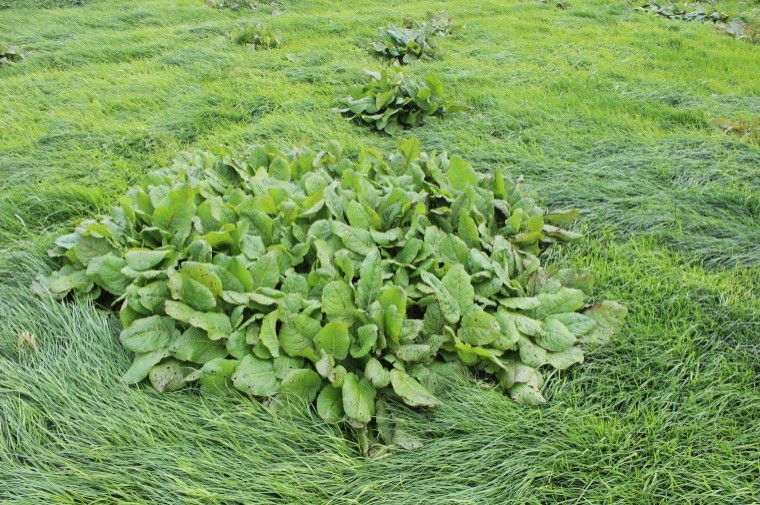Grassland farmers may need to tackle dock infestations in silage fields in the next few weeks, as the early spring led to first cuts being taken before these tough perennial weeds could be treated. Where docks are present, weed control is a small cost relative to the gain in extra grass and silage produced.
“After last year’s forage shortage it is understandable that farmers were keen to get started on their silage, but this gave little chance for any weed control early on,” says Dr Nicola Perry, weed biology specialist with Corteva Agriscience.
“But it is not too late. Spraying with a modern translocated herbicide, like DoxtarPro, two to three weeks after first cut, will catch the weeds with rosettes of fresh green leaves and when they are all of a similar dinner-plate size, which will ensure good spray coverage.
“There will also be less grass growth around the weeds, so it will be easier to hit the target plants when spraying. DoxstarPro should be applied at a rate of 2l/ha in 300 to 400 litres of water, unless low drift nozzles are used, when water rates can be reduced to 200l/ha.
“Many livestock farmers now employ contractors to carry out spray operations, as they will be fully certified to do the job and have the latest machinery. This means the farmer needs to plan ahead to the next silage cut and work back to the date he needs the contractor and book him in.”
If the silage field has a wider spectrum of weeds growing in it, the Pas.Tor Agronomy pack offers a good solution. It gives excellent control of thistles and nettles, as well as docks.
Photo: Spraying docks in silage leys three weeks after cutting means they are at the perfect stage for treatment




